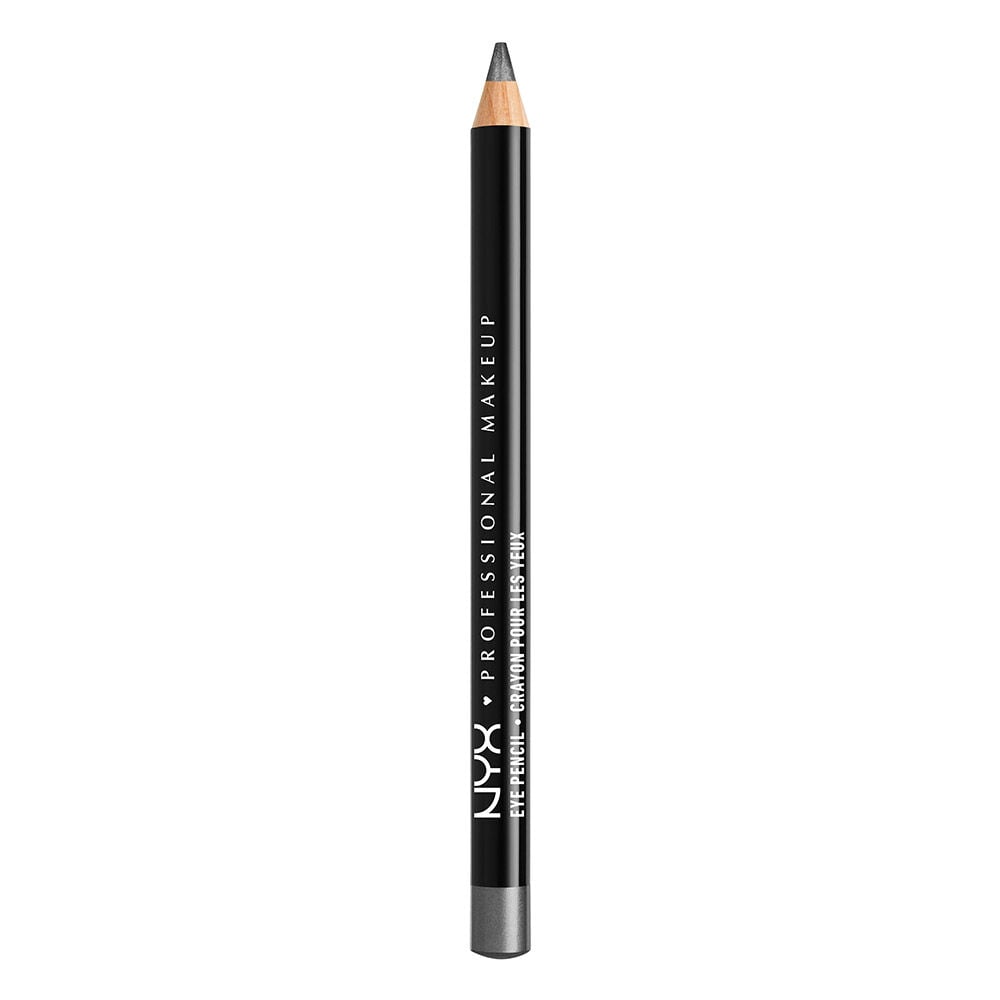
People have cultivated grapes for thousands of years, including several ancient civilizations that revered them for their use in winemaking. Grapes also make a quick and delicious snack you can enjoy at home or on the go.
You may find them in various colors, including green, red, black, yellow, and pink. They come in multiple forms, too, from raisins to jellies to juice. Seeded and seedless varieties also exist. Grapes offer a wealth of health benefits, primarily due to their high nutrient and antioxidant contents. Here are the top 16 health benefits of grapes.
1. Packed with nutrients
Grapes are high in several important nutrients. Just 1 cup (151 grams) of red or green grapes provides (1Trusted Source):
Grapes also provide good amounts of B vitamins like thiamine, riboflavin, and B6. Both thiamine and riboflavin are needed for growth and development, while B6 is mainly required for protein metabolism (4Trusted Source, 5Trusted Source, 6Trusted Source).
SUMMARY
Grapes contain many important vitamins and minerals, including copper and vitamins B and K.
2. May aid heart health
Grapes may boost heart health in several ways. May help lower blood pressureOne cup (151 grams) of grapes contains 6% of the DV for potassium. This mineral is necessary for maintaining healthy blood pressure levels (1Trusted Source, 7Trusted Source). Evidence shows that potassium helps lower blood pressure primarily by helping dilate your arteries and veins. It may also help excrete sodium and prevent the narrowing of arteries and veins that would otherwise increase blood pressure (8Trusted Source). However, a review of 32 studies determined that potassium intakes that are both too low and too high may lead to high blood pressure. Researchers advised sticking to the current daily intake recommendation of 4.7 grams (9Trusted Source). May help reduce cholesterolCompounds found in grapes may help protect against high cholesterol levels by decreasing cholesterol absorption (10Trusted Source). In an 8-week study in 69 people with high cholesterol, eating 3 cups (500 grams) of red grapes per day helped lower total and LDL (bad) cholesterol levels. However, white grapes didn’t have the same effect (11Trusted Source). Additionally, diets high in resveratrol — an antioxidant in grapes — such as the Mediterranean diet have been shown to decrease cholesterol levels (12Trusted Source).
SUMMARY
Compounds in grapes may protect against heart disease by lowering blood pressure and cholesterol levels. 
3. High in antioxidants Antioxidants are compounds that help repair the damage to your cells caused by free radicals — harmful molecules that cause oxidative stress. Oxidative stress is associated with several chronic health conditions, including diabetes, cancer, and heart disease (13Trusted Source). Grapes are rich in several powerful antioxidants. The highest concentration of antioxidants is found in the skin and seeds. However, multiple factors may affect their concentration, including grape variety, maturity, post-harvest storage, and environmental factors (14Trusted Source). Interestingly enough, these beneficial compounds remain present even after fermentation, which is why wine is also an antioxidant source (14Trusted Source, 15Trusted Source). Some grape varieties contain a higher content of anthocyanins, a class of flavonoids that give these fruits orange, red, blue, pink, and purple colors. Human and animal studies indicate that anthocyanins may help prevent or treat brain and heart diseases (14Trusted Source, 15Trusted Source). Other important antioxidants in this fruit are resveratrol and quercetin, which may protect against heart disease, high blood sugar levels, and cancer (14Trusted Source, 16Trusted Source). Grapes also contain vitamin C, beta carotene, lutein, and ellagic acid, which are also powerful antioxidants (14Trusted Source).
SUMMARY
Grapes are rich in antioxidants, which are beneficial plant compounds that may protect against chronic health conditions.
4. May have anticancer effects
Antioxidants in grapes may protect against certain types of cancer (14Trusted Source). Resveratrol, an antioxidant in this fruit, may help by reducing inflammation, acting as an antioxidant, and blocking the growth and spread of cancer cells in your body. In fact, it has been studied for its effects against numerous cancers (17Trusted Source, 18Trusted Source, 19Trusted Source, 20Trusted Source). Grapes also contain quercetin, anthocyanin, and catechin antioxidants — all of which may have cancer-fighting effects (21Trusted Source). Test-tube and animal studies show that grape extracts may block the growth and spread of human colon and breast cancer cells (22Trusted Source, 23Trusted Source, 24Trusted Source). Additionally, a 2-week study in 30 people found that those over the age of 50 who ate 0.3–1 pound (150–450 grams) of grapes per day experienced decreased markers of colon cancer risk (25Trusted Source). While more human studies are needed, a diet high in antioxidant-rich foods, such as grapes, has been linked to lower cancer risk (26Trusted Source).
SUMMARY
Antioxidants in grapes may prevent the growth and spread of multiple types of cancer, though human research is lacking.
5. May protect against diabetes and lower blood sugar levels
Grapes contain 23 grams of sugar per cup (151 grams), which may make you wonder if they’re a good choice for people with diabetes (1Trusted Source). If you take a look at their glycemic index (GI) rating — a measure of how quickly a food raises your blood sugar — you’ll see that it ranges from 49–59, depending on grape variety (27, 28Trusted Source). Similarly, the definition of low GI is variable depending on the source — some people consider under 55 as low, while others consider under 50 as low (27, 28Trusted Source). This means that grapes’ GI score may range from low to medium, in which case they may raise your blood sugar levels at a slow or moderate pace but won’t necessarily spike it. However, keep in mind that eating too much of a low GI food will have the same effect on blood sugars as eating a high GI food. So, it’s best to eat grapes in moderation. In addition, compounds found in grapes may help improve markers of insulin response. In a review of 29 studies in 1,297 adults, grapes and grape supplements significantly decreased what’s called homeostatic model assessment of insulin resistance (HOMA-IR), a measure of insulin resistance (29Trusted Source). In particular, the compound resveratrol may improve your body’s ability to use insulin by (30Trusted Source, 31Trusted Source, 32Trusted Source):
SUMMARY
Though grapes are high in sugar, their low to moderate GI makes them fairly safe to eat in moderation if you have diabetes. Additionally, compounds in grapes may protect against high blood sugar.
6. May benefit eye health
Plant compounds in grapes may protect against common eye diseases. For instance, in a study in mice, those fed grapes showed fewer signs of damage to the retina and had better retina function than mice not given the fruit (33Trusted Source). Additionally, in a test-tube study, resveratrol was found to protect retina cells in the human eye from ultraviolet A (UVA) light. This may lower your risk of age-related macular degeneration (AMD), a common eye disease (34Trusted Source). According to one review, resveratrol may also safeguard against glaucoma, cataracts, and diabetic eye disease (35Trusted Source). Plus, grapes contain the antioxidants lutein and zeaxanthin, which have been shown to help maintain eye health, improve visual performance, and prevent common age-related eye diseases (36Trusted Source, 37Trusted Source).
SUMMARY
Grapes contain several compounds — such as resveratrol, lutein, and zeaxanthin — that may help prevent common eye diseases. 
7. May improve memory, attention, and mood
Eating grapes may boost memory and brain health. In a 12-week study in 111 healthy older adults, taking 250 mg of a grape supplement daily significantly improved scores on a test measuring attention, memory, and language, compared with baseline values (38Trusted Source). Another study in healthy young adults showed that drinking 7.8 ounces (230 mL) of grape juice improved both mood and the speed of memory-related skills 20 minutes after consumption (39Trusted Source). What’s more, in a study in rats, 4 weeks of resveratrol intake improved learning, memory, and mood. In addition, the rats’ brains showed signs of increased growth and blood flow (40Trusted Source). Lastly, resveratrol may protect against Alzheimer’s disease by reducing brain inflammation and removing amyloid-beta peptide, the accumulation of which has been linked to this condition (41Trusted Source, 42Trusted Source).
SUMMARY
Grapes contain compounds that may improve memory, attention, and mood, as well as protect against Alzheimer’s disease.
8. May support bone health
Grapes contain many minerals necessary for bone health — including potassium, manganese, and vitamins B, C, and K, which help prevent osteoporosis, a condition that leads to fragile bones (1Trusted Source, 43Trusted Source). Additionally, animal and human studies demonstrate that resveratrol may improve bone density (44Trusted Source, 45Trusted Source, 46Trusted Source). For example, in an 8-week study, rats fed freeze-dried grape powder had better bone absorption and calcium retention than rats that didn’t receive the powder (44Trusted Source). Furthermore, a 2-year study in postmenopausal women showed that taking 75 mg of resveratrol twice daily improved bone mineral density and slowed bone loss, reducing the risk of major fractures and hip fractures (46Trusted Source).
SUMMARY
Grapes contain vitamins and minerals important for bone health, although more research is needed in humans.
9. May protect against bacteria and fungi
Several compounds in grapes may protect against harmful microorganisms (4Trusted Source7Trusted Source, 48Trusted Source). For example, resveratrol has antimicrobial properties that inhibit the growth of bacteria and fungi like Campylobacter jejuni and Candida albicans (49Trusted Source). It may also protect against foodborne illnesses. When added to various types of food, resveratrol helps prevent the growth of harmful bacteria, such as E. coli (49Trusted Source, 50Trusted Source). Other compounds in grapes with antimicrobial activity include anthocyanins, which may destroy bacterial cell walls (51Trusted Source). Lastly, grapes are a good source of vitamin C, which is well known for its immune system benefits (1Trusted Source, 52Trusted Source).
SUMMARY
Grapes contain several compounds that may have beneficial effects against harmful bacteria and fungi.
10. May slow signs of aging and promote longevity
Plant compounds in grapes may affect aging and lifespan. Research shows that resveratrol may delay signs of aging by mimicking the beneficial effects of calorie restriction, such as reducing oxidative stress, enhancing stress resistance, and improving inflammatory response (53Trusted Source, 54Trusted Source). Keep in mind that these benefits have only been seen in animal studies. In addition, resveratrol activates the SirT1 gene, which is activated by low calorie diets and has been linked to longer lifespans (55Trusted Source, 56Trusted Source). Resveratrol also activates sirtuin, a protein that regulates cellular processes like aging and cell death (57Trusted Source).
SUMMARY
Resveratrol, which is found in grapes, has been shown to activate genes associated with slower signs of aging and longer lifespan.
11. May lower inflammation
While low level inflammation is a typical bodily response, chronic inflammation plays a key role in the development of long-term health conditions like cancer, heart disease, diabetes, arthritis, and autoimmune disorders (58Trusted Source). Notably, anthocyanin and resveratrol compounds in grapes have been linked to powerful anti-inflammatory properties (51Trusted Source, 59Trusted Source). Research shows that both compounds can suppress the expression of inflammatory markers like tumor necrosis factor-alpha (TNF-alpha) and interleukin-6 (IL-6) (60Trusted Source, 61Trusted Source).
SUMMARY
Grapes contain compounds with anti-inflammatory effects, which may in turn protect against chronic diseases. 
12. May benefit skin and hair health
Resveratrol may have numerous protective effects on your skin and hair. In fact, this compound has gained popularity in cosmetic products because it penetrates the skin barrier and increases collagen concentration, as well as protects against UV damage from sun exposure (62Trusted Source, 63Trusted Source). Animal studies show that resveratrol’s effect on collagen production may promote faster wound healing (63Trusted Source). Because oxidative stress and inflammation play a role in hair loss, research suggests that resveratrol may also promote hair growth (64Trusted Source). For starters, resveratrol protects hair follicles from environmental damage. It also promotes the rapid increase of important follicular cells that encourage hair growth (64Trusted Source).
SUMMARY
The antioxidant resveratrol in grapes may protect your skin from damage and promote hair growth but more research is needed.
13. May have anti-obesity effects
Obesity may increase your risk of multiple health conditions, including diabetes, heart disease, and cancer (65Trusted Source). Notably, anthocyanins in grapes may have anti-obesity effects. Studies in rats fed a high fat diet show that anthocyanins may suppress body weight gain and reduce liver fat content (60Trusted Source). Additionally, research in animals found that proanthocyanidin extract from grape seed may increase levels of the fullness hormone GLP-1, which may lower appetite and reduce food intake (65Trusted Source).
SUMMARY
Antioxidants in grapes may combat obesity by inhibiting appetite and preventing weight gain. However, research in humans is lacking.
14. May relieve constipation
Constipation involves passing stool less often than usual and feelings of incomplete evacuation (66Trusted Source, 67Trusted Source). Dietary changes like increasing fiber and fluid intake are essential to treatment, since dehydration is a common secondary cause of constipation (67Trusted Source). Fiber in whole fruits like grapes may significantly improve constipation symptoms by reducing the time it takes stool to move through your colon, as well as increasing fecal weight and daily bowel movements, compared with fruit juices (68Trusted Source). Additionally, grapes are 81% water, so they may help you reach your hydration goals (1Trusted Source).
SUMMARY
As a good source of water and fiber, grapes may help relieve constipation. 
15. May support sleep
Evidence suggests a direct link between diet and sleep (69Trusted Source). In fact, studies have determined that grapes are a natural source of melatonin, a sleep-promoting hormone that regulates your sleep-wake cycle (69Trusted Source, 70Trusted Source, 71Trusted Source). Interestingly enough, melatonin is found mainly in grape skin, which is why it’s also present in products like grape juice and wine (69Trusted Source). Since melatonin works hand-in-hand with your internal clock, intake timing is an essential factor to consider. If you’re eating grapes to help you sleep, aim to consume them early in the evening.
SUMMARY
Grapes are a natural source of melatonin, a hormone that may improve your sleep quality.
16. Easy to add to your diet
Grapes are delicious, versatile, and easy to incorporate into a healthy diet. Here are a few ways to enjoy them:
SUMMARY
Grapes are easy to snack on or add to your meals. Grape juice and red wine — in moderation — may provide benefits as well.
Fresh grapes fruit vs. grape juice
Both grapes and grape juice share multiple health benefits, but the whole fruit is generally healthier. That’s partly because the production process for grape juice — which includes heating the juice to avoid fermentation — may reduce its antioxidant content by 44% (72Trusted Source, 73Trusted Source). In addition, fruit juices provide little to no fiber compared with whole fruits, as well as a higher sugar content. Evidence shows that diets that include whole fruits instead of juice are more effective for weight management for the following reasons (68Trusted Source):
So, you should aim to eat fresh grapes rather than drink grape juice whenever possible.
SUMMARY
While whole grapes and grape juice provide multiple nutrients, eating fresh fruit ensures a higher intake of fiber and antioxidants, plus a lower sugar intake. 
Does wine provide health benefits?
Like whole grapes and grape juice, wine is a good source of antioxidants and offers numerous health benefits (75Trusted Source). In fact, research shows that moderate wine intake may protect against heart disease, diabetes, and even cancer (75Trusted Source, 76Trusted Source, 77Trusted Source). However, keep in mind that heavy drinking — defined as more than four drinks per day — is associated with an increased risk of death and heart disease (78Trusted Source, 79Trusted Source). Current U.S. dietary guidelines recommend limiting your alcohol intake to 1 drink per day for women and 2 drinks per day for men. For reference, every 5 ounces (150 mL) of wine equals 1 drink (79Trusted Source). Nevertheless, while moderate wine intake may positively affect your health, like grape juice, it lacks whole grapes’ fiber content.
SUMMARY
Like whole grapes, wine is a good source of antioxidants, and it offers multiple health benefits. However, excessive intake may lead to detrimental health effects.
The bottom line
Grapes offer several important nutrients and powerful plant compounds that benefit your health. Though they contain sugar, they don’t appear to negatively impact blood sugar control when eaten in moderation. Antioxidants like resveratrol provide most of grapes’ benefits, including their anti-inflammatory, anti-diabetes, and anticancer properties. They are also quite delicious and easy to add to your diet. For the most benefits, choose fresh grapes over grape juice or wine. Just one thing
Try this today: If you want your grapes to last up to 14 days, choose the ones with a green stem and store them in an airtight container at the back of your fridge, which is usually the chilliest spot.
AuthorWritten by Ariane Lang, BSc, MBA and Melissa Groves — Medically reviewed by Imashi Fernando, MS, RDN— Updated on January 28, 2022.
This article originally appearedhere.
|
Archives
February 2023
Archives
February 2023
Categories
All
AuthorKelly Cuip is a registered nutritionist, author, researcher, blogger and mother. |
Natural-Hacks Copyright © 2014-2022
Disclaimer: The information in the articles on this blog are strictly of the opinion of the author. The words and other content provided in this blog, and in any linked materials, are not intended and should not be construed as medical advice, as this blog does not provide diagnosis or treatment. This blog is strictly for educational purposes. Some pages may contain affiliate programs with links.




 RSS Feed
RSS Feed





